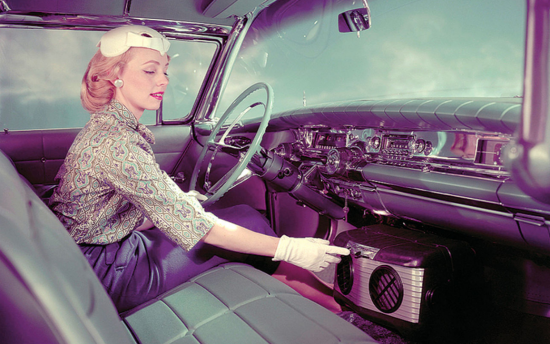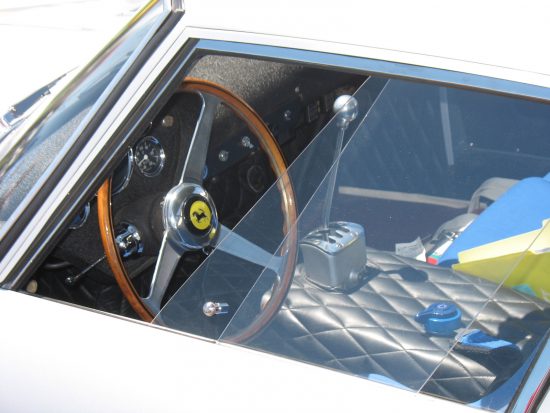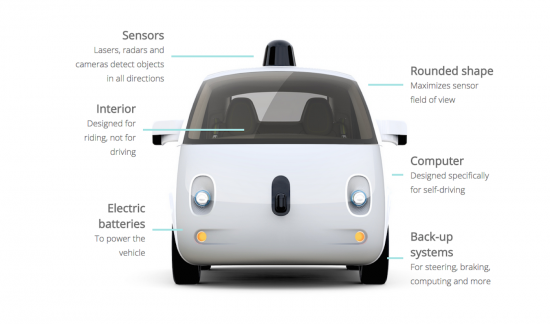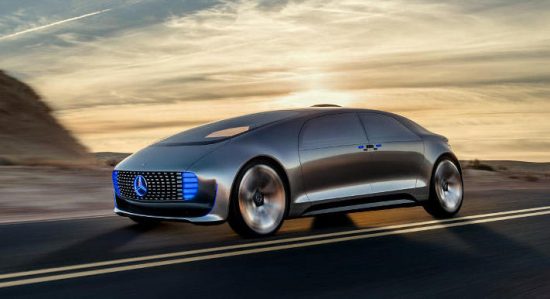by Mike –
In Automobile Luddites The First Part I wrote about the difficult transition from horse powered carriages and wagons to gasoline powered cars and trucks and why some people resisted this inevitable change.
The automobile evolved significantly over the 20th century and continues to evolve today at a rapid pace.
Early important technology improvements included the electric ignition and the electric starter, rather than the manual crank, (both invented by Charles Kettering, for Cadillac in 1910–1911), independent suspension, and four-wheel brakes. I doubt if anyone objected to these technology changes because they made the automobile easier to use and safer.
Later air-conditioning made it comfortable to travel in hot weather, disc brakes improved safety and power steering and power assisted brakes made driving easier and the optional automatic transmission made driving accessible to people who were not able to drive a manual transmission. Fuel injection replaced carburetors and improved efficiency and reliability.

Early car air conditioning from Automobile
When cruise control and anti-lock braking systems (ABS) were introduced that is when we see the automobile taking some control away from the driver for the first time.
Traction control systems, and emergency brake assist, or electronic stability control (ESC) and adaptive cruise control continue to use technology designed to take some of the manual functions away from the driver.
BMW’s iDrive introduced in 2001 caused a problem for many BMW buyers because they had a difficult time understanding this new control system.
Manual control versus automated, computer control of the driving of the automobile is where I think many automobile Luddites will have a problem. There are complex entertainment and GPS systems but one can choose to use those or not. Some of these driving controls are not optional and this situation is only going to get worse for people who don’t like change.
If you are in the market for a new Ferrari you won’t find one with a manual transmission. And if you are looking for a used, recent model sports car (Ferrari, Aston Martin, Porsche, Lamborghini etc…) the majority will not have a manual transmission either. Some will have 4-wheel drive so the experience of steering the car with the rear wheels is gone.
Even if you are not a sports car person but like to control and manually drive your automobile you may not like the future of new automobiles. Human control of driving is being phased out of automobile design.
If you have not bought a new car in the past few years, like me, you may be surprised at the new technology in many new cars and trucks.
I just bought a new car for the first time in 10 years. The technology available on new cars now is quite different than it was 10 years ago. There are more aids to driving that improve safety and take away some of the control from the driver.
Automatic emergency braking with pedestrian detection, adaptive cruise control that keeps a fixed distance from the vehicle in front, and technology that guides a car back into its lane are standard on several Toyota models. Honda has drowsy-driver detection as an option.
The Self-Driving Car and Automobile Luddites
Technology has made the automobile available to more people who otherwise would be relegated to passenger status only. Now we are heading into a new era where anyone can use an automobile even if they do not know how to drive, have a driver’s license or have the capability to drive a car such as a blind person or someone with a handicap that prevents driving a car. Not only does the fully self-driving automobile not need a driver it also doesn’t need passengers!
The self-driving, or autonomous car, is the biggest advance in automobile technology since the automobile was invented. It will bring out the natural automobile Luddites and may expose people who do not know they are automobile Luddites.
We will likely see people grouped by age with the younger ones accepting and liking this new technology and some older people not liking or accepting these changes. This will be similar to what happened with the personal computer, the internet and the smart phone.
The Luddite objectors will resist the loss of control and privacy. The loss of privacy is already an issue with the smart phone tracking our every move as long as the owner allows that feature to be turned on.
With the self-driving car we may not have a choice to turn off the location tracking. These cars will all talk to each other to negotiate their way through traffic without an accident.
My three part series on self-driving cars is at this link.
Below are comments from two readers of this series,
Comment 1:
Are you kidding? You’ve lost me now. I can’t believe this was posted on a supposed auto enthusiasts site! Disgusting. Go play with your phones!
Comment 2:
Just because we can, doesn’t mean we should. I cannot understand why anyone would want to give up the freedom of self determination. This is the beginning of the loss of personal freedom. Once all your whereabouts and travels are known, they can and will be controlled. Yes, the technology is coming, but I want no part of it.
The thoughts above are an indication of what I believe will be widespread and create another separation of people by age with younger people not caring about loss of control and privacy and older people being very concerned about this transition.
How will we all adapt? Will the Luddites be able to slow down the changes or will they be forced to accept the future?
Let us know what you think in the Comments.






HEADS UP.
None of us may be able to own any of these cars past their warranty. These things we did not demand and may not want are complex, delicate and expensive.
So expensive that the when the car is out of warranty and depreciated the cost of repairing or replacing them can easily be more than the value of the car. See some of the baring and water cooling problems of Porsche.
I opt for some of the old-school controls on cars, more for involvement than anything. I really don’t have a big need for net connectivity while I’m driving and prefer a manual gearbox. But there are times when an automatic works better, and there will be many times when self-driving cars (SDCs) will be preferable — and they’ll add mobility to many people who struggle with it now or who shouldn’t be behind the wheel. We already have too many who have abdicated their driving responsibilities but aren’t in SDCs, and as a result they’re careless and dangerous to have on the road. So I welcome improvements there. But I’m not a Luddite about car tech — I see it coming, appreciate most of it, chose to not use or buy some of it, but I’m not destroying what’s being made or denying useful ideas.
And by the way, it wasn’t the “Luddites” among BMW buyers who caused problems using iDrive. It was the poor usability engineering done by BMW, overly complex menu trees to navigate while driving, a single point of access to a wide range of control items, and lack of reliability. (Given the pathetic on-board GPS that BMW shipped with 2000-era cars I’m not surprised that they screwed up iDrive.) They didn’t validate their approach with real users and they deservedly took a lot of heat. They have since adjusted their approach, and other manufacturers have addressed the control and complexity issues in a more enlightened way.
We’re assuming many things about tech going forward. Will you be able to get in a car quickly — within a minute – and go help a family member if you need to wait for the next available car to show up? Will it be clean after carrying a day’s worth of customers? If you have to drive across a field to get to an injured animal and there are no human controls, how will you do that? If you are fully dependent on a strong GPS signal, what happens when you don’t have it?
The manufacturers need to have answers for all the corner cases if they’re hoping to sell into all markets, and the legislators better not start imposing restrictions on mobility if the devices won’t handle those situations. There are ways to do this right, but too often car makers and law makers jump the gun and we’re left dealing with the gaps and problems. I’m sure we’ll see plenty of those issues during this long transition. I just hope I’ll still be able to drive my old car when and where I want to, but even that seems questionable 20 years out.